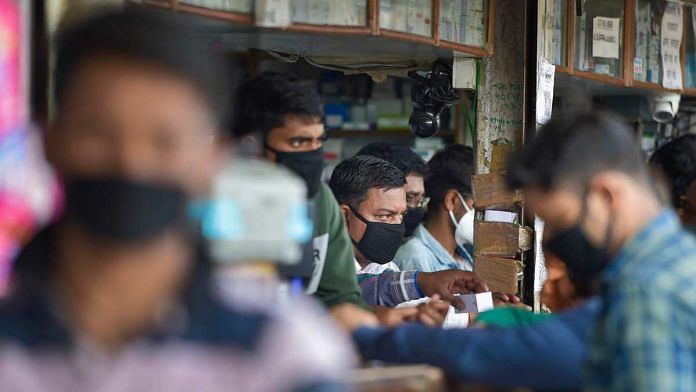Most people who have caught the COVID-19 coronavirus suffer little more than mild illness from which they soon recover. But for some – particularly the elderly and patients with existing health conditions – the consequences can be more severe.
Media headlines are abuzz with the story and there is a lot of information, and a good deal of misinformation, about the disease and what can be done to prevent it spreading.
The vast majority of the more than 90,000 cases recorded so far have been in China, where the virus started, although the outbreak has spread to almost 60 countries around the world. Globally, around 3.4% of the reported cases have been fatal.
In comparison to seasonal flu, COVID-19 appears to be less easily transmitted but causes more severe illness. Generally, fewer than 1% of people affected with seasonal flu die.
The World Bank has committed a $12 billion aid package for developing countries to help them improve their public health response to the crisis, as well as reduce the economic impact.
Sri Lanka, Vietnam and the Phillippines are deemed to be those most at risk from the economic fall-out from the virus, according to a report from the Overseas Development Institute. The ODI also highlights countries with weak health infrastructure, limited public finances and close economic links with China are also vulnerable.
COVID-19 can be transmitted by people with the virus coughing or sneezing, releasing tiny contaminated droplets into the air, putting anyone within range in danger of inhaling them. These droplets can travel more than a metre from the infected person, allowing them to settle on any surfaces ready to be transferred to anyone that touches the surface.
The virus can live on some surfaces for several days. Data from the 2003 SARS outbreak, which was a similar illness to the latest coronavirus, showed the virus could contaminate plastered walls for up to a day and a half, plastic and stainless steel for 72 hours, and glass for 96 hours. So it’s likely the mobile phone, tablet or computer screen you are reading this on could harbour COVID-19 for up to four days, and be transferred to anyone touching the screen.
Effective hygiene is one of the most effective weapons to slow or prevent the virus spreading. Here are five things you can do to protect yourself and others.
Also read: The search for new drugs for coronavirus faces long odds
1. Avoid touching your eyes, nose and mouth
Our hands touch door handles, keyboards, taps and numerous other surfaces, so the virus could easily be picked up this way. Rubbing tired eyes or touching your nose or mouth could transfer the virus from your hands into your body.
2. Wash your hands regularly
Clean your hands thoroughly and often, using plenty of soap and water or an alcohol-based hand rub to kill any virus on your hands. Scrub for at least 20 seconds, making sure you clean fingers, thumbs and palms.
#COVID19 is an infectious disease caused by a new #coronavirus introduced to humans for the first time. It spreads from person to person mainly through the droplets produced when an infected person speaks, coughs or sneezes. pic.twitter.com/1erCABYbIQ
— Tedros Adhanom Ghebreyesus (@DrTedros) February 29, 2020
3. Practise respiratory hygiene
If you cough or sneeze, use a tissue and throw it in the trash afterwards. If you don’t have a tissue, cough into the crook of your arm instead of using your hand. If possible, avoid coughing or sneezing near other people.
4. Maintain social distancing
Be aware of people around you and keep your distance from anyone coughing or sneezing. Stay at least 1 metre away to prevent inhaling the small liquid droplets sprayed by coughs and sneezes.
5. If any symptoms develop, seek medical care early
Stay at home if you feel unwell, and if you develop a fever, cough or difficulty breathing seek medical attention. Call in advance of your visit, and follow the advice of your local health provider – they will have the most up-to-date information on the situation in your area.
And here are a couple of other important things to be aware of that can help efforts to contain the virus.
Stop buying face masks
Unless you are a healthcare professional, you probably don’t need to wear a face mask because of COVID-19. While masks may prevent a wearer with the disease coughing over others, it is unlikely to prevent the disease being transferred to someone healthy who is wearing a mask.
Panic buying has caused a huge spike in demand for masks, leaving many businesses sold out.
The US Centers for Disease Control and Prevention (CDC) advises only wearing a face mask if you are sick or caring for someone with the disease, as there is a risk that mask supplies will run out for health professionals who need them.
Stay informed
Accurate information about COVID-19 and its spread is essential. But beware, because there is a lot of misinformation, scaremongering and fake news floating around on social media that can hamper efforts to contain the virus.
The latest information is available by visiting trusted sources like the World Health Organization’s information page.
Also read: Kashmir gears up to host first-ever Winter Games amid coronavirus scare



